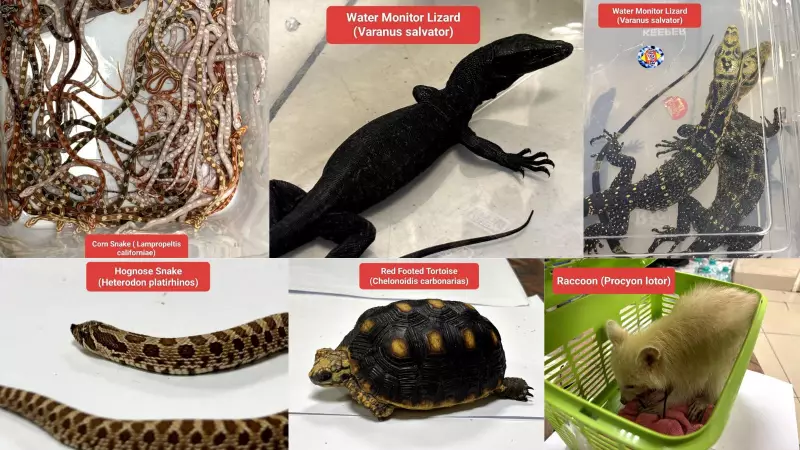
In a dramatic airport interception that reads like a wildlife crime thriller, Mumbai customs officials have foiled an audacious attempt to smuggle rare and protected animal species to Bangkok. The incident unfolded at the bustling Chhatrapati Shivaji Maharaj International Airport, where a female passenger's suspicious luggage revealed a shocking secret cargo.
The discovery was made during routine baggage screening when officials noticed unusual shapes and movements within the woman's luggage. Upon thorough inspection, they uncovered a carefully concealed collection of live exotic animals, including multiple snake species and rare lizards, all packed for international transit.
Wildlife Trafficking: A Global Concern
This case highlights the persistent threat of wildlife trafficking that continues to plague international borders. The smuggling of rare species represents not just a legal violation but a serious threat to global biodiversity and ecological balance.
Customs officials confirmed that the intercepted species are protected under wildlife conservation laws, making their trade and transportation illegal without proper permits and documentation—none of which the passenger possessed.
Airport Security Steps Up Wildlife Protection
The successful interception demonstrates enhanced vigilance by Indian airport authorities in combating wildlife crime. Advanced scanning technology and trained personnel worked in coordination to detect what could have been another successful operation for wildlife traffickers.
Wildlife experts emphasize that such smuggling attempts often result in high mortality rates for the animals involved, who suffer from stress, inadequate ventilation, and improper handling during transit.
Legal Consequences and Ongoing Investigation
The accused woman now faces serious legal consequences under India's wildlife protection laws and customs regulations. Authorities have launched a comprehensive investigation to uncover potential connections to larger wildlife trafficking networks.
This incident serves as a stark reminder that wildlife crime doesn't pay. Enhanced surveillance, public awareness, and strict enforcement continue to be crucial weapons in protecting endangered species from illegal trade.





